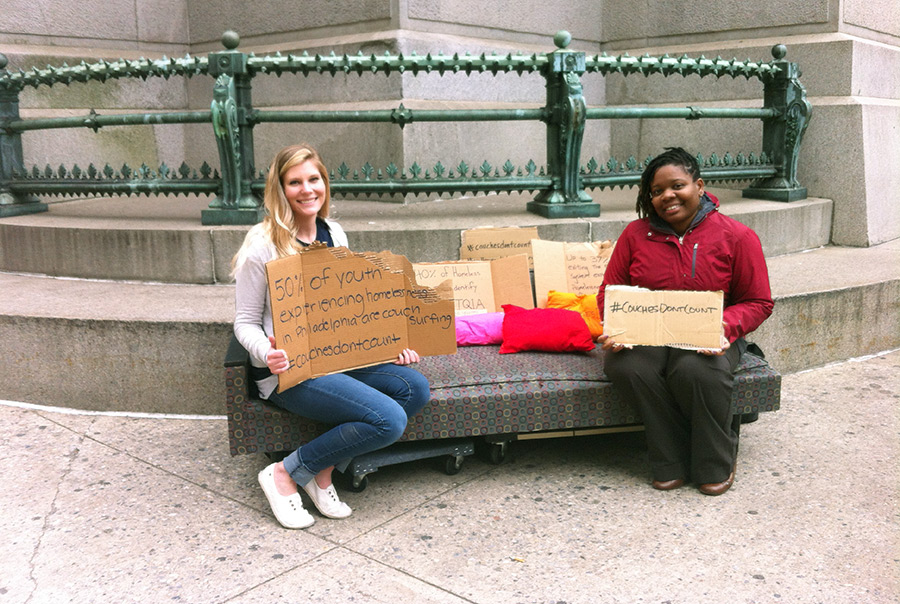Philadelphia City Councilmembers Helen Gym and Alan Domb held a hearing on ending youth homelessness in Philadelphia last Thursday. In front of more than 200 people, LGBT youth and their advocates, including Nellie Fitzpatrick of the Office of LGBT Affairs, came out in full force to tell City Council what young, queer and homeless Philadelphians need to live safe and healthy lives.
LGBT youth are disproportionately affected by the problem of homelessness. According to the anti-homelessness organization Youth Valley House, 54 percent of Philadelphia’s young homeless people identify as LGBTQ. Often, they become homeless after family rejection of their sexuality or gender identity.
In her testimony, Fitzpatrick requested that Council factor in the needs of LGBT youth and make accommodations when building a system to help homeless young people, including cultural competency training on LGBT issues for Department of Human Services staff and potential foster parents. She also urged LGBT-specific housing. Currently, youth in the system are placed without specific consideration of their sexuality or gender identity. Fitzpatrick told Council: “[Young people] often feel safer on the streets than dealing with the risk of the system.”
Although the statistics for homeless LGBT youth are already significant, Fitzpatrick warned Council that there are even more young people in need than have been counted.
“Don’t build a system around these numbers,” she said. “Homeless youth hide.”
Council also heard from young people who have experienced homelessness.
First was Kamar Jewel, who was homeless by age 16 after he was kicked out of his family’s home for coming out. Jewel was homeless for two years and described to the gallery nights of hunger, fear and sexual violence on city streets. He still struggles with trauma from that period in his life. The hardest part, he said, was feeling that he was alone with his pain.
Jewel began working with The Attic Youth Center for counseling and support and in 2010 found permanent housing through Youth Valley House’s PRIDE program. Now he is back on track to being who he wants to be: He has toured in Europe as a vogue dancer, works as a mentor to LGBT youth and is currently preparing to enter graduate school.
“I am one of the lucky few. Many of my LGBTQ brothers and sisters have gone through the same things and are now battling addiction, are incarcerated or are no longer with us,” he said.
Phantazia Washington also gave testimony to Council. She described homelessness as “a web of intertwined barriers and, like a web, the more you fight, the deeper you fall into it.”
She described how, after coming out, she experienced bullying at school, an indifferent and homophobic school administration and a family who struggled to understand. By 16, she was living on the streets. Washington described the cycle she experienced: “You need an education to get a job. But how can I focus on school when I don’t know where I’m going to sleep at night?”
She closed her testimony by saying, “If we are going to continue to call ourselves The City of Brotherly Love, we must remember that justice is what love looks like in public.”
See Washington, Jewel and other young people tell their stories of coming back from homelessness and poverty by watching the full Council hearing here: https://youtu.be/bEH8tyo1JiU.
For more information or resources, visit https://www.valleyyouthhouse.org and www.atticyouthcenter.org.
